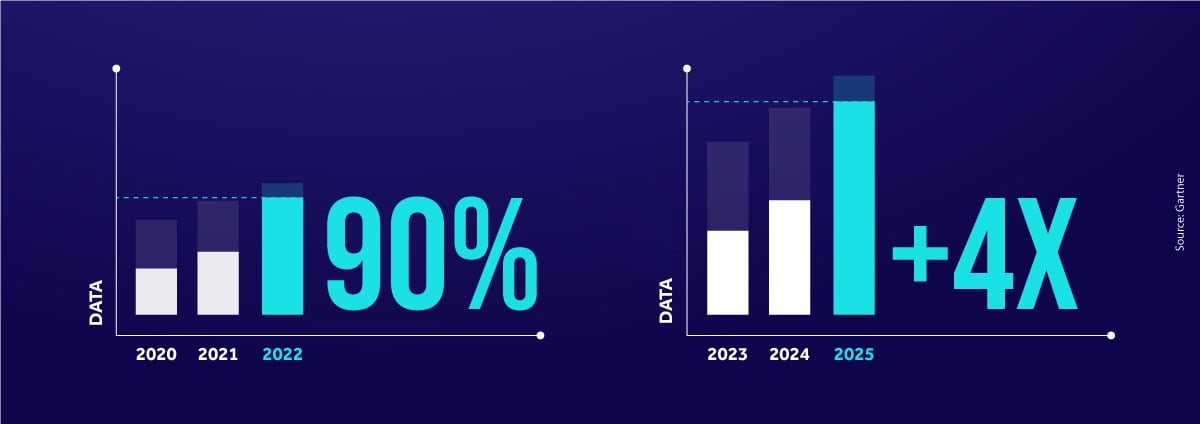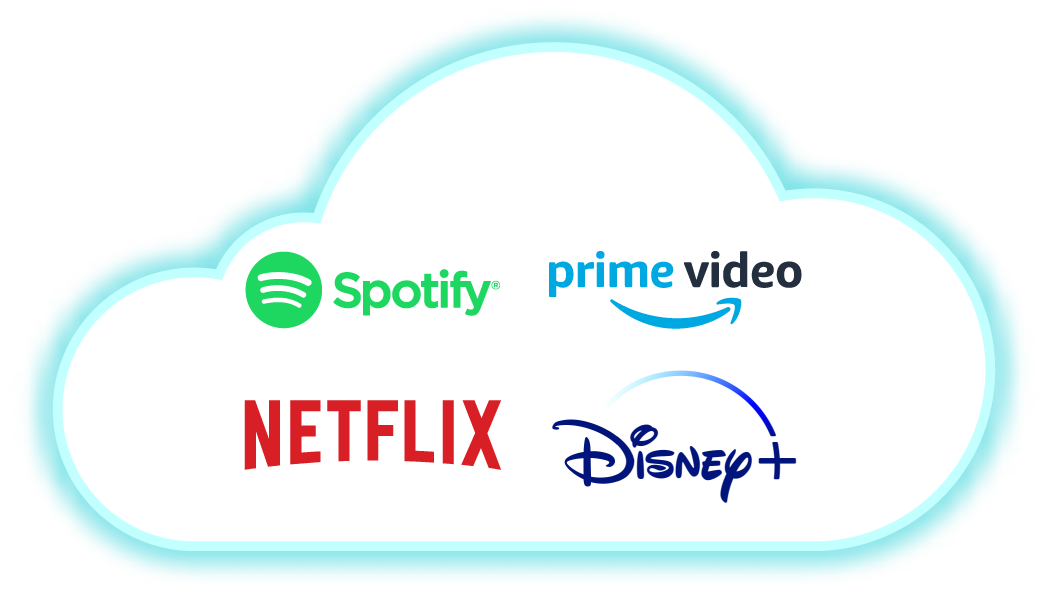Data-driven culture: curiosities and impacts on businesses
 Zoox Smart Data - 3 de June de 2022.
Zoox Smart Data - 3 de June de 2022.
The old cliché phrase "think how your customer would like to be treated and have their needs met" has never made more sense in the corporate environment than it does today. Being one step ahead, imagining needs and understanding tastes seems like hard work that takes manpower and time.
This would be the plausible scenario if technology had not emerged to guide both personal and corporate life. Today, we have the possibility to count on instruments that facilitate the integration of information - capable of bringing inputs for actions that envision growth, productivity, etc. So,
What is a data-driven culture?
In the current scenario, information and data permeate technology life considerably and, according to studies, most companies do not use all the data acquired in their databases to the desired extent.
It is estimated that in the last three years, companies have managed to store more than 90% of the data produced from their entire data warehousing history, and that this figure is still likely to quadruple by 2025, according to Gartner.

But what to do with all the data collected and how to use it in favor of your business? How to create a strategy where this information is used for assertive decision making?
The data-driven culture arrives to make the world of data a more visible, organized, and, above all, strategic place.
- Read also: What is a Data Driven Company?
It is not just about capturing information from your data source
Who has never suffered from a poorly done powerpoint presentation, knows the despair of seeing data thrown away and rich information wasted, having its power not used to the fullest.
The data-driven culture has come to ensure that as little as possible is lost. Able to gather this information and make it pleasing to our eyes, strategically, to transform information into real tangible decision-making actions.
It comes to guide, through the use and organization of data and algorithms, the business intelligence. But how does this happen? It's simple: through statistical methods and analysis of directions, this data is treated and separated for organizations, companies, and people to have greater visibility of the action to be taken.
The big point at issue, which makes data essential for its use in the business world, is the ease of making presumable possible future actions, to have a notion of which actions would perform better through the information obtained about: behavior, targeting, spending forecasts, budgets, etc.
By adopting a data-driven culture in companies, it is possible to glimpse alignments capable of identifying needs, not visible until now, mitigating gaps and errors, so that, in the face of any strategies that the company may come to think of executing, making a possible negative impact minimal.
It is also responsible for finding quick solutions for unforeseen events, such as decreasing costs and increasing business to business (b2b) sales.
The data-driven culture goes far beyond just gathering information to aid decision making. It is a science that covers complex topics, such as the use of Big Data, to extract strategic information. It uses data intelligence, ways to optimize commercial and internal processes, improving investments, among others.
Data-driven can be implemented without major investments
It would be frivolous to say that having a smart, data-driven culture, able to deal with data, analyze it, organize it, and optimize its use in a strategic way is something cheap - it would be a lie. But what appears to be absurdly costly is not.
Understanding the need to have a data-driven culture in a company is the first step, and we could say here that it is the first major investment. Data intelligence requires a differentiated training to manipulate data, build models, and construct indicators.
As said at the beginning of this article, many companies have a plethora of data to which they do not have the intelligence to manage it. Thus, there are some points that go far beyond the financial impact that companies must pay attention to if they want to adopt a data-driven culture in their companies.
- Data organization - Structuring the data is the first major step that a company must take. It is necessary to have a solid base of information capable of generating good inputs for analysis.
- Analysis tools
- Professional qualification
- Data protection
These are some of the key factors for the implementation of a data-driven culture.
Today, there are data-driven companies, such as Zoox, that are able to offer data intelligence solutions without your business being hindered by the bureaucracy of understanding an entire sector that BI designates.
How to start adopting data-driven decisions in your business?
To start implementing a data-driven culture, it is necessary to understand this culture as a management tool. In other words, it must start at the C-Levels (top).
Once the entire management is based on data, the example will be followed at other levels of the corporation.
Another relevant practice to implement the Data-Driven Decision culture is to select good metrics, dedicate work to their collection, and monitor them periodically. This also works by bringing the data science, the IT professional, and the software used closer to all the company's processes, thus maintaining an overview and analytical vision, sophisticating the entire Data-Driven process.
When it comes to decision making, it is always important to remember that data does play a major role in this process, but there are margins for error. It is always crucial to be clear about the levels of uncertainty.
Data-driven decision making (DDD) may contain some allies for greater objectivity. Currently Decision Intelligence, which is one of the trends in technology for 2022, according to Gartner, allies increased analysis automation, simulations, and Artificial Intelligence, assisting in the Data-Driven process, maximizing predictability and assertiveness for decision making.
How are companies using data-driven culture?
Large companies, which are already Data-Driven, are reaping more than satisfactory results and serve as an example for those who are interested in becoming data-driven companies. Big techs like Google, Spotify, Amazon, Facebook, Netflix and Disney are good cases in point.
What do they have in common? They use this business intelligence to optimize and accelerate processes. Streaming companies like Spotify, Amazon Prime, Netflix and Disney use real data from users, analyze the profile of each one, make continuous market measurements, fan behavior and other data-based strategies to always offer the best product to the user, and to exceed the expectations of the final consumer through research.

Companies like Amazon, on the other hand, use Data-Driven to optimize their inventory and logistics, using AI and intelligent algorithms.
Brazilian companies like Itaú Unibanco, which has now become one of the largest banks in the country, use real customer data to create solutions that impact and meet consumer expectations.
But these solutions are not only applicable in large companies like the ones mentioned above. Advanced data analysis within a Data-Driven Culture helps the business to understand from which region is the best to open a branch to measure the number of employees needed to avoid unnecessary expenses.
To help your company on this journey, you can count on Zoox solutions. Our Zoox Eye Analytics & Data Science platform drives business with the insights your company needs to move forward. Request a demo.






Comments